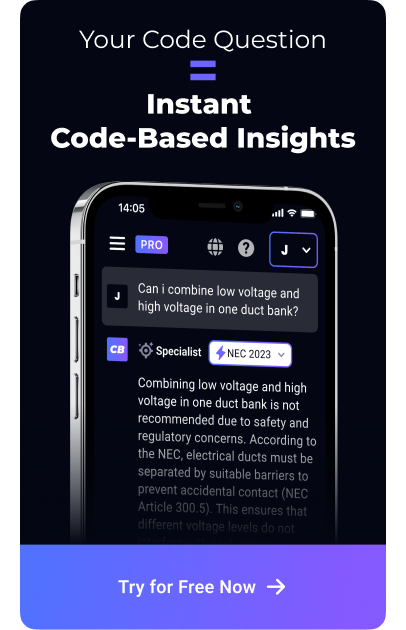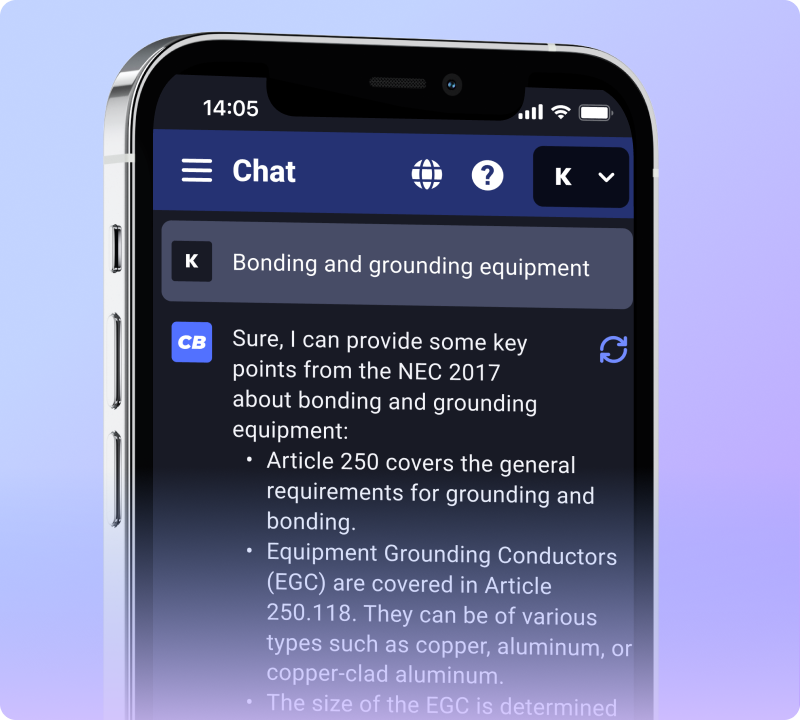Have you ever wondered why your appliances flicker or stop unexpectedly? A major reason could be not meeting the NEC dedicated circuit requirements. This article sheds light on how understanding and applying these guidelines can ensure your home appliances run smoothly and safely.
Keep reading to learn all about it!
Key Takeaways
- Dedicated circuits are needed for major home appliances like fridges and HVAC systems to prevent overloading and ensure safety.
- The National Electrical Code (NEC) sets rules that certain appliances, including kitchen devices and laundry room machines, must have their own circuits.
- Hiring a professional electrician is important to meet NEC requirements, ensuring your home’s electrical system is safe and efficient.
- Regular checks on dedicated circuits help avoid electrical hazards by keeping them in good working condition.
What is a Dedicated Circuit and Why is it Important?
A dedicated circuit is defined as a circuit that serves only one appliance or electrical load. The National Electrical Code (NEC) mandates that most major home appliances, such as refrigerators and HVAC systems, must have their own dedicated circuits for safety and to ensure proper functioning.
These circuits are essential for preventing overloading and providing a reliable power source.
The NEC requires specific guidelines for dedicated circuits, particularly for heat-producing devices and kitchen appliances. For example, an electric range or oven requires its own 120/240-volt circuit according to NEC specifications.
Following these electrical code requirements is crucial in maintaining safety regulations and ensuring the efficiency of home appliance circuits.
Common Home Appliances that Require Dedicated Circuits
Common home appliances often need dedicated circuits to function safely. These circuits provide the necessary power without overloading the system.
Kitchen appliances
Kitchen appliances such as refrigerators, dishwashers, and electric ranges often require dedicated circuits according to the National Electrical Code (NEC). Large kitchen devices need their own circuit to prevent overloading and ensure reliable power supply.
For example, an electric range or oven must have a dedicated 120/240-volt circuit as specified by NEC regulations. This helps maintain safety while also allowing these essential appliances to function properly.
Dedicated circuits for kitchen appliance circuits are crucial for meeting appliance power requirements. They help in avoiding tripped breakers caused by the simultaneous use of multiple high-demand devices.
Following NEC guidelines is vital for electrical safety in residential electrical systems, especially concerning heat-producing devices that can pose fire risks if not wired correctly.
Laundry room appliances
Laundry room appliances, such as washers and dryers, require dedicated circuits to operate safely. The National Electrical Code (NEC) specifies that these devices need their own circuit to prevent overloading and ensure a reliable power source.
A typical electric dryer requires a 240-volt dedicated circuit, while washing machines usually need a 120-volt circuit.
Following NEC guidelines for dedicated circuits is essential for the safety of both the appliances and your home. Properly wiring laundry room circuits can help avoid potential hazards such as electrical fires or equipment malfunction.
Electricians should carefully assess each appliance’s requirements during installation to meet compliance with NEC regulations effectively.
Heating and air conditioning units
Heating and air conditioning units require dedicated circuits as specified by the National Electrical Code (NEC). These systems often demand significant power, which makes using a separate circuit essential for both safety and functionality.
A dedicated circuit prevents overloads that could lead to tripped breakers or damaged equipment.
According to NEC regulations, HVAC systems must have their individual circuits to ensure reliable operation. Proper electrical wiring is crucial for these heat-producing devices. Compliance with NEC guidelines enhances efficiency while safeguarding against potential hazards in household electrical circuits.
Other heat-producing devices
Other heat-producing devices also require dedicated circuits for safe operation. Examples include electric water heaters, toasters, and space heaters. The National Electrical Code (NEC) mandates that these devices have their own dedicated circuit to prevent overloading the electrical system.
Overloaded circuits can lead to overheating and increase fire risks. Following NEC guidelines ensures that heat-producing device circuits function efficiently while maintaining safety regulations for dedicated circuits in residential settings.
It’s essential for electricians to install these circuits correctly and verify compliance with the NEC requirements for proper electrical safety.
Electrical Code Requirements for Dedicated Circuits
Dedicated circuits must follow specific guidelines set by the National Electrical Code (NEC). These rules help ensure safety and proper function for each device connected to a circuit.
Overview of NEC regulations
The National Electrical Code (NEC) outlines crucial regulations for electrical installations in homes. It mandates that most major home appliances have dedicated circuits to ensure safety and proper functioning.
A dedicated circuit serves one appliance or load exclusively, preventing overloads and ensuring a reliable power source. The NEC specifies that appliances like refrigerators, electric ranges, and HVAC systems require individual circuits to operate efficiently.
Understanding NEC compliance is essential for electricians working on circuit installation. For example, an electric range or oven must have its own dedicated 120/240-volt circuit as per NEC guidelines.
Following these requirements helps maintain the safety and efficiency of heat-producing device circuits and small appliance circuits within residential settings.
Determining the need for dedicated circuits
Determining the need for dedicated circuits is crucial to ensure safe operation of home appliances. Most major appliances, such as refrigerators and HVAC systems, require dedicated circuits according to NEC regulations.
A dedicated circuit serves only one appliance or electrical load, preventing overloading and ensuring reliable power supply.
Understanding which kitchen circuits and heat-producing device circuits require dedication can help avoid potential hazards. The NEC specifies that an electric range or oven must have its own 120/240-volt circuit.
Proper assessment of these needs ensures compliance with safety standards while maximizing efficiency in your home’s electrical system. This leads into a discussion about the electrical code requirements for dedicated circuits.
Guidelines for dedicated circuits
Dedicated circuits must adhere to the National Electrical Code (NEC) requirements for safety and efficiency. Each major home appliance or heat-producing device, such as refrigerators and HVAC systems, requires its own dedicated circuit to function properly without overloading the electrical system.
For example, an electric range or oven should have a dedicated 120/240-volt circuit as specified by NEC guidelines.
Consideration of amperage is vital when installing dedicated circuits. It’s essential to ensure that the circuit can handle the specific load of each appliance according to NEC standards.
Compliance with these regulations helps prevent potential hazards and ensures reliable operation for appliances within homes.
Ensuring Safety and Compliance
Properly wiring dedicated circuits ensures safety in your home. Hiring a qualified electrician helps meet all regulations and prevents future problems.
Understanding electrical codes
Understanding electrical codes is essential for electricians and those involved in electrical preferences. The National Electrical Code (NEC) mandates that most major appliances, including heat-producing devices, require dedicated circuits.
This ensures safety by preventing possible overloads and providing reliable power sources for these appliances. Following the NEC guidelines is vital to maintain compliance and enhance the overall efficiency of home systems.
Specific regulations within the NEC also dictate the types of circuits necessary for various appliances. For instance, an electric range or oven must operate on a dedicated 120/240-volt circuit as specified by code requirements.
Adhering to these standards helps ensure that all installed equipment functions correctly while minimizing risks associated with improper wiring or inadequate circuit capacities.
Properly wiring dedicated circuits
Proper wiring of dedicated circuits is essential to comply with NEC regulations. Each major appliance, such as refrigerators and HVAC systems, requires its own dedicated circuit to ensure reliability and safety.
For example, an electric range or oven must have a 120/240-volt circuit specific to that appliance. This prevents potential overloads and ensures proper functioning.
Careful attention should be given during installation. Following electrical code requirements helps reduce risks associated with heat-producing devices. Electricians need to utilize the correct wire gauge and breaker size for each dedicated circuit based on the appliance’s wattage demands.
Adhering to these guidelines guarantees compliance with the National Electrical Code (NEC) standards for safe residential electrical setups.
Hiring a professional for installation
Hiring a professional to install dedicated circuits ensures compliance with the National Electrical Code (NEC). Professionals understand that the code requires most major appliances and heat-producing devices, like electric ranges and HVAC systems, to have their own dedicated circuit.
This prevents overloading and guarantees appliances receive reliable power. Electricians have the training necessary for proper wiring, which is crucial for safety.
Attempting DIY installations can lead to costly mistakes or hazardous situations. It’s vital for homeowners to prioritize safety by hiring qualified electricians who are familiar with NEC guidelines.
This sets a solid foundation for ensuring the efficiency of home appliances in accordance with electrical code requirements. Next, let’s discuss regular maintenance and checks needed for these circuits.
Regular maintenance and checks
Regular maintenance and checks for dedicated circuits are crucial to ensure the safety and efficiency of home appliances. The National Electrical Code (NEC) mandates that most major appliances, such as refrigerators and HVAC systems, require dedicated circuits to prevent overloading.
These circuits provide a reliable power source specifically for one appliance or electrical load, minimizing risks associated with improper functioning.
Electrical professionals should routinely inspect dedicated circuits for wear or damage. Regular testing can identify potential issues before they escalate into dangerous situations.
Ensuring compliance with NEC guidelines helps safeguard not only the performance of heat-producing devices but also the overall safety of the home’s electrical system.
Conclusion
Understanding NEC dedicated circuit requirements is crucial for the safety and efficiency of home appliances. Dedicated circuits prevent overloading and ensure each appliance receives adequate power.
Following these guidelines protects your home from electrical hazards. Prioritize compliance with NEC standards to keep your household safe and functional.
FAQs
1. What are NEC dedicated circuit requirements for home appliances?
NEC dedicated circuit requirements refer to rules set by the National Electrical Code (NEC) that dictate how circuits should be installed and used for major home appliances.
2. Why do heat-producing devices need a dedicated circuit?
Heat-producing devices, as outlined by the NEC, require their own circuits because they use a lot of power and can overload shared circuits, potentially causing safety issues.
3. How do I know if my appliance requires a dedicated circuit according to the NEC?
If your appliance is considered a major home appliance or a heat-producing device by the National Electrical Code standards, it likely needs its own dedicated circuit.
4. Are all home appliances required to have their own circuits under NEC guidelines?
Not all home appliances require individual circuits under NEC guidelines; however, high-power items like heat producing devices typically do in order to prevent electrical overloads and ensure safe operation.


